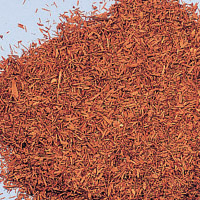Gluten Free
What does following a gluten-free diet mean? That you're embarking on an easy diet with a wide range of health-promoting effects. Instead of dwelling on what you’re giving up, consider that you’re going to enjoy a whole new world of delicious food options to meet your special dietary needs. You’ll be eating seasonally, choosing more fresh fruits and vegetables, focusing on meats, seafood, poultry, legumes, lentils, corn, and rice, and discovering fascinating ancient grains such as quinoa, amaranth, and millet. You’ll be able to eat potatoes, eggs, most cheeses, even chocolate (!)—and enjoy them without guilt because you’ll be taking good care of your body. In fact, you’ll probably end up eating—and feeling—better than ever!
Visit this page for more information about living Gluten Free
---
We carry a large variety of gluten free items, the brands listed below represent just some of the offerings we carry















More Diets
Yohimbe for Sports & Fitness
 © Martin Wall
© Martin WallHow Much Is Usually Taken by Athletes?
The ability of yohimbine, a chemical found in yohimbe bark, to stimulate the nervous system,1, 2 promote the release of fat from fat cells,3, 4 and affect the cardiovascular system has led to claims that yohimbe might help athletic performance or improve body composition.5 However, a double-blind study of men who were not dieting reported no effect of up to 43 mg per day of yohimbine on weight or body composition after six months.6 No research has tested yohimbe herb for effects on body composition, and no human research has investigated the ability of yohimbine or yohimbe to affect athletic performance. Other studies have determined that a safe daily amount of yohimbine is 15 to 30 mg.7 However, people with kidney disorders should not take yohimbe, and side effects of nausea, dizziness, or nervousness may occur that necessitate reducing or stopping yohimbe supplementation.
Side Effects
Patients with kidney disease, peptic ulcer or pregnant or breast-feeding women should not use yohimbe.8 Standard amounts may occasionally cause dizziness, nausea, insomnia, anxiety, increased blood pressure, and rapid heart beat,9 though all of these are rare.10 Using more than 40 mg of yohimbine per day can cause dangerous side effects, including loss of muscle function, chills, and vertigo. Some people will also experience hallucinations when taking higher amounts of yohimbine.11 Taking 200 mg yohimbine in one case led to only a brief episode of hypertension, palpitations, and anxiety.12 People with post-traumatic stress disorder13 and panic disorder14 should avoid yohimbe as it may worsen their condition.
Interactions with Supplements, Foods, & Other Compounds
Foods with high amounts of tyramine (such as cheese, red wine, and liver) should not be eaten while a person is taking yohimbe, as they may theoretically cause severe high blood pressure and other problems. Similarly, yohimbe should only be combined with other antidepressant drugs under the supervision of a physician, though at least one study suggests it may benefit those who are not responding to serotonin reuptake inhibitors such as fluoxetine (Prozac).15
Interactions with Medicines
Certain medicines interact with this supplement.
none | |
none | |
none | |
none |
Copyright © 2025 TraceGains, Inc. All rights reserved.
Learn more about TraceGains, the company.
The information presented by TraceGains is for informational purposes only. It is based on scientific studies (human, animal, or in vitro), clinical experience, or traditional usage as cited in each article. The results reported may not necessarily occur in all individuals. Self-treatment is not recommended for life-threatening conditions that require medical treatment under a doctor's care. For many of the conditions discussed, treatment with prescription or over the counter medication is also available. Consult your doctor, practitioner, and/or pharmacist for any health problem and before using any supplements or before making any changes in prescribed medications. Information expires December 2025.











